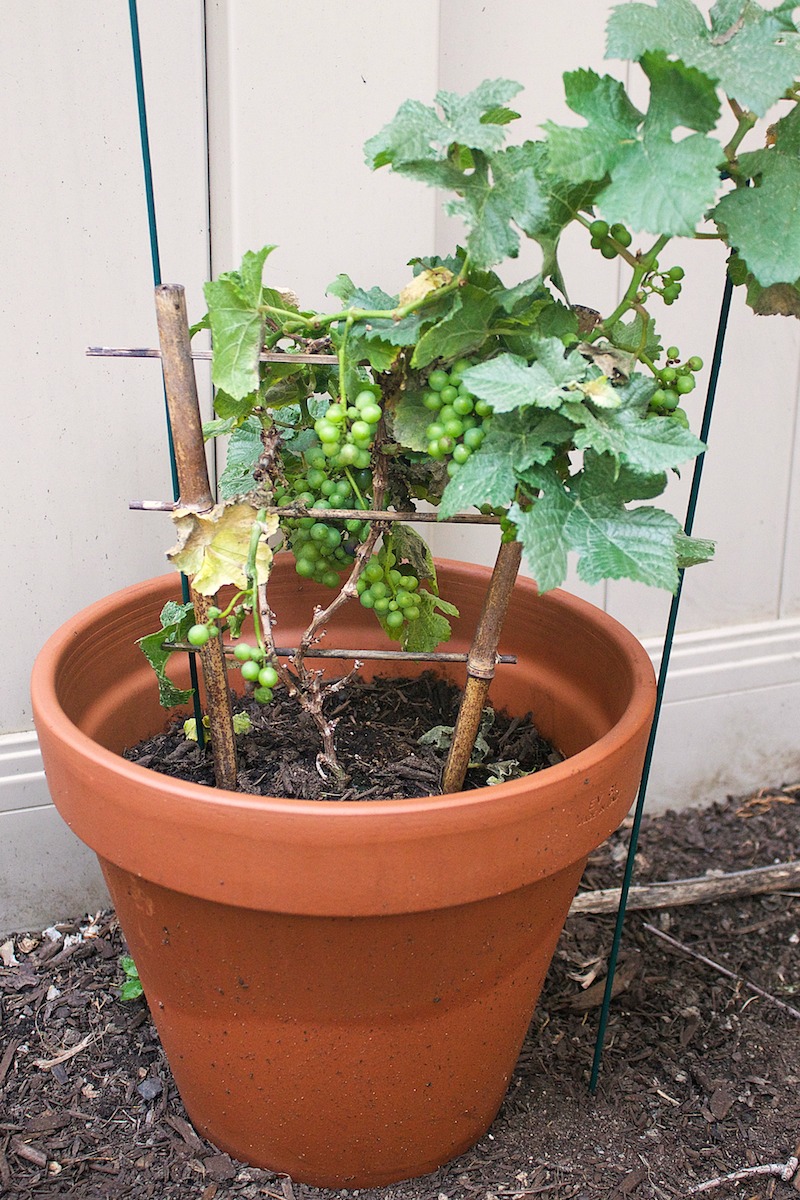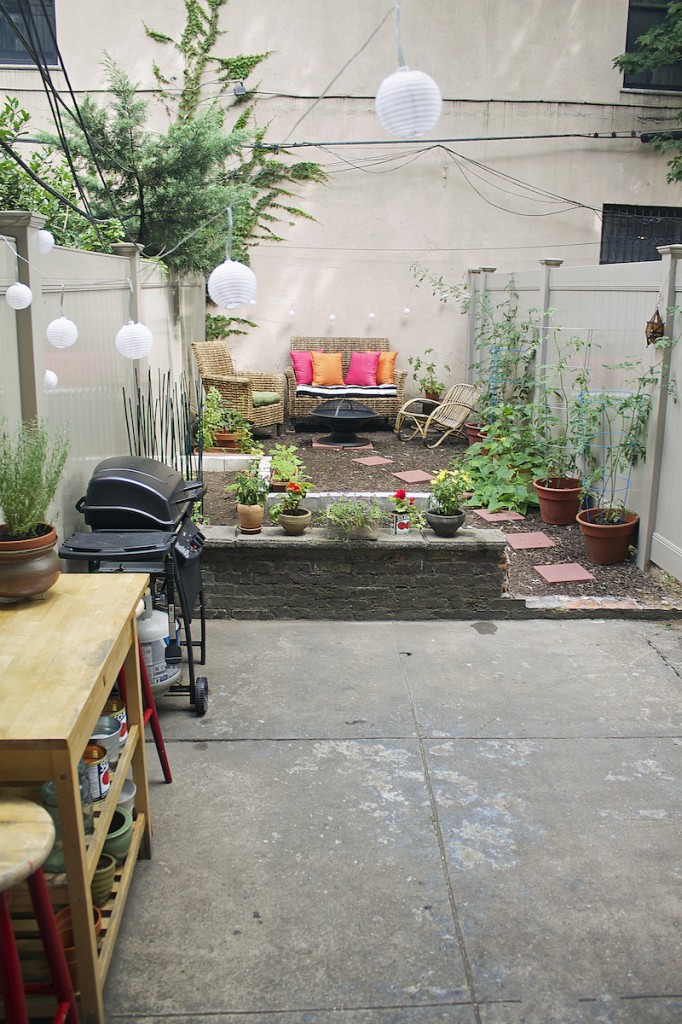Brooklyn Backyard Reveal, Part 1

It's finally time for the big backyard reveal! I know, I know, it's already halfway through summer and I'm just getting this up here. I blame.....the fact that we've been enjoying the yard so much, I almost forgot to take pictures??! Does that work as a valid excuse? Excuses or not, the backyard pictures (part one) are finally here!
I wanted to start by first sharing our garden and all the veggies we've been busy growing (yup, we're #28goingon60). One of the biggest reasons why Mr. RC and I wanted outdoor space was specifically so we could have some home-grown produce. I grew up in a family of gardeners and home-grown produce was a part of every summer meal. Of course, when I was younger, the only reason you would find me in the garden was by force (weeding was on my chore list) or because I was sneaking a veggie snack. Of course, now that I'm older (and wiser) I realize how much I missed the simplicity of fresh picked tomatoes and lettuce for a supper salad, or picking a few green beans to snack on, so, despite everyone telling us that a garden in Brooklyn would never work, we decided we would make it work (we're such #gardennerds). Currently we have 4 types of tomatoes, 4 types of peppers, peas, beans, swiss chard, radishes, carrots, beets, lettuce, chives, parsley, basil, sage, dill, rosemary, cucumbers, yellow and green summer squash, and a grape plant. Below are a few pictures of our plants plus a few tips for "urban gardening" (mostly courtesy of my 13 year-old brother who spends his spare time working on a farm and is quite the little gardening whiz). Stay tuned next week for part 2 of the Brooklyn backyard makeover reveal.
Small Gardening Tips
Know when to start something by seed and when to buy a plant already started
- Seeds are great for things like lettuce, herbs, spinach, peas and beans as well as things that grown into the ground (i.e. beets, carrots, onions)
- Buy starter plants for things that take longer to germinate, so tomatoes, peppers, squash, eggplant, and cucumbers are all good examples
Use pots to make your space go further
- Anything that grows up and not out is great for a pot, i.e. things like tomatoes and peppers.
- Herbs are also great in pots. While some of them do spread out, we tend to use herbs enough in our cooking that the plants are always getting trimmed back.
- Of course, keep the shape of your plant in mind when picking out pots. Tomatoes will need something very large, herbs mostly work well in smaller, round pots, and things like thyme or mint spread out so I would recommend using rectangular shaped planters.
- Don't be afraid to try growing something less traditional in a pot. We have both cucumbers and squash in planters, and while the squash have yet to produce fruit, both plants are doing really well. In a way, the pot replaces the mound of dirt traditionally needed to plant things like squash so I think that's why it works so well. Just make sure you have room to let the vines spread out.
Combine plants to maximize your gardening space
- Coordinate your plants based on how they grow to get the most gardening space out of your planters. What I mean by this, is place plants that grow up with plants that stay low or grow out. So for example, peppers grow up and squash spreads out, so in one box we have the peppers in the middle (along with some dill) and then the cucumbers are on the edge growing down over the sides of the box. Thyme is another plant that grows low and does well on the edge of a flower pot. If you have a wall or trellis, put things like peas and beans next to that and then put something low growing beneath them.
Make sure you consistently water, weed, and fertilize
- I know this kind of goes without saying, but the biggest key to a successful garden (big, small, or just in pots), is making sure you keep things cleaned up and weeded, water consistently, and fertilize (or use soil that has fertilizer added to it).
Do you have a garden? If so, I'd love to know what you are growing.
















